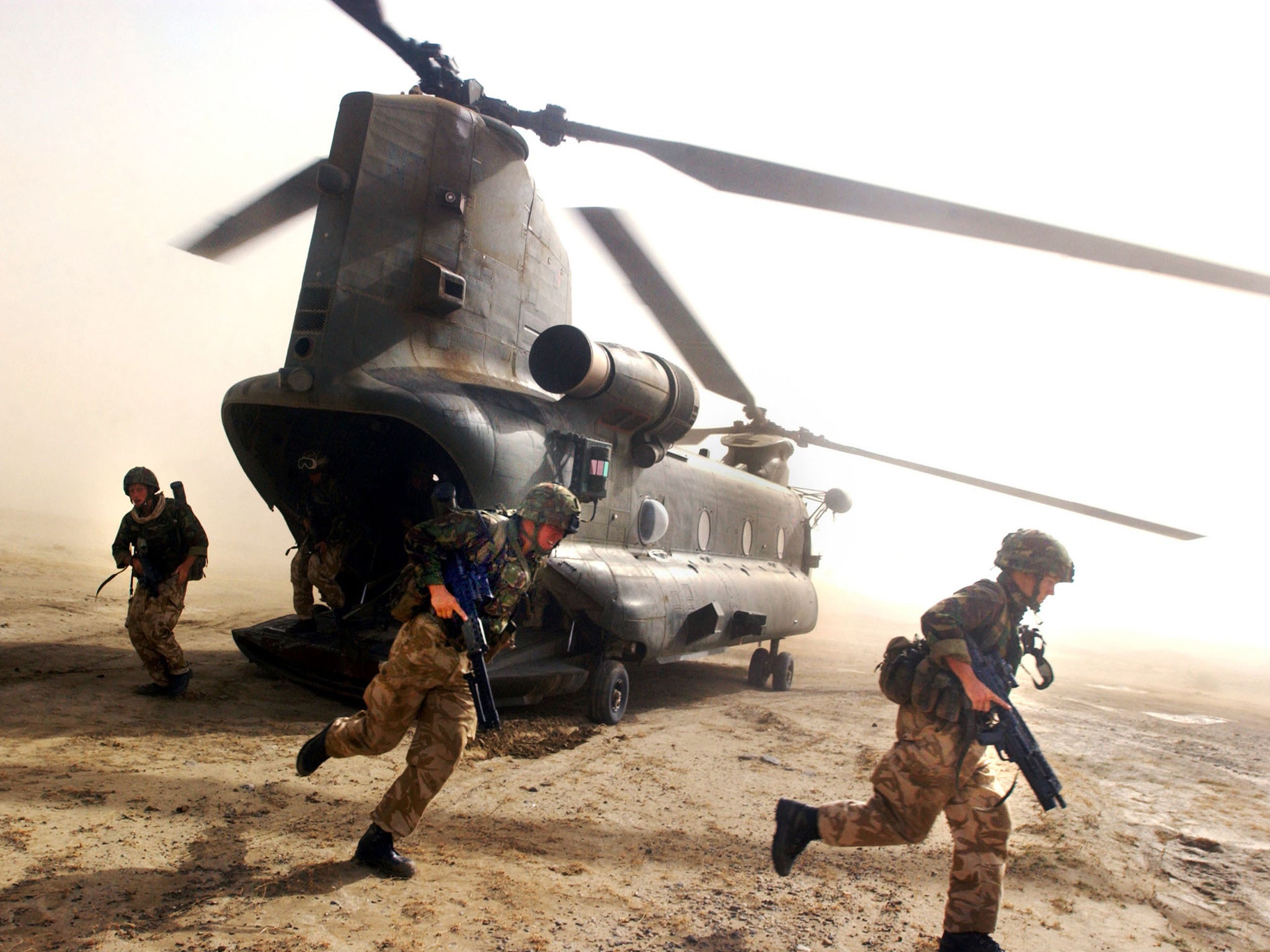Your support helps us to tell the story
From reproductive rights to climate change to Big Tech, The Independent is on the ground when the story is developing. Whether it's investigating the financials of Elon Musk's pro-Trump PAC or producing our latest documentary, 'The A Word', which shines a light on the American women fighting for reproductive rights, we know how important it is to parse out the facts from the messaging.
At such a critical moment in US history, we need reporters on the ground. Your donation allows us to keep sending journalists to speak to both sides of the story.
The Independent is trusted by Americans across the entire political spectrum. And unlike many other quality news outlets, we choose not to lock Americans out of our reporting and analysis with paywalls. We believe quality journalism should be available to everyone, paid for by those who can afford it.
Your support makes all the difference.Have you ever been in a war zone or a hostile combat environment? Whenever you come back from one of those, it takes a while to adjust. You’re constantly restless and don’t quite know how to fit back into the world that’s been operating without you – on such different terms - for so long. You know you're in a challenging place. But if someone had sat me down and told me that one day I wouldn’t be going back to the career I’d worked so hard for due to post-traumatic stress disorder (PTSD), I don’t know what I would have said in reply.
There is one night in particular that will always stay with me. We had got into a night fight and there were lots of bullets flying around from both sides. It was incredibly intense. I remember being in a ditch, and feeling so utterly drained. For a moment, I wanted to be back home, as kid, and just be with my mum.
It was a fleeting moment. I pulled myself together, came back to the reality of my situation and the danger I was in, and pushed through it. But it’s those cracks in thought patterns, jumping around to different memories, which can be a warning sign of PTSD. In truth, the memories never go away.
By the time I left, I’d seen some truly horrible things over the course of two decades in the forces. Those ten years in the Marines and ten years in the Special Boat Service (SBS) led to me developing a terror that I couldn’t really place. But still, I know I would have scoffed at the thought of becoming a sufferer of PTSD. To tell you the truth, I was a non-believer.
My PTSD was bred directly from combat stress – I’ve been involved in intense hostage rescue situations, tours of duty and counter-insurgency operations in incredibly hostile environments. Being in the field was a huge catalyst, of course, but that didn’t mean that more ‘normal’ aspects of my life didn’t have just as much of an effect on me. PTSD can change how you react to everyday life and makes returning home after combat a hard transition – especially if you’ve been medically discharged.
The fact that I did end up medically discharged from the SBS meant that a lot of doors were closed in my face when I returned to civilian life. I couldn’t apply for jobs in the police, and most security firms wouldn’t take me on either, because there is a general perception that PTSD makes you vulnerable and unpredictable in new situations. When you’re trying to come to terms with starting a new life and living with a condition you don’t understand, the inability to throw yourself into another job is awful.
In the end, I helped set up a business, Break Point, which offers SAS experience days, and began working on an SAS-style challenge based TV programme. It allows me to work with the skills I already have without returning to combat or putting myself in a relapse situation. Having a focus, and working hard on new projects, has lessened my symptoms and allowed me the necessary time and space to reflect.
When you have seen terrible things, you have to make an effort to remain positive about life. For me, I know that potentially allowing PTSD to take hold and begin to control my life with fear is my biggest weakness. But a strong person acknowledges their weaknesses.
Jason “Foxy” Fox appears on Channel 4’s SAS: Who Dares Wins

Join our commenting forum
Join thought-provoking conversations, follow other Independent readers and see their replies
Comments